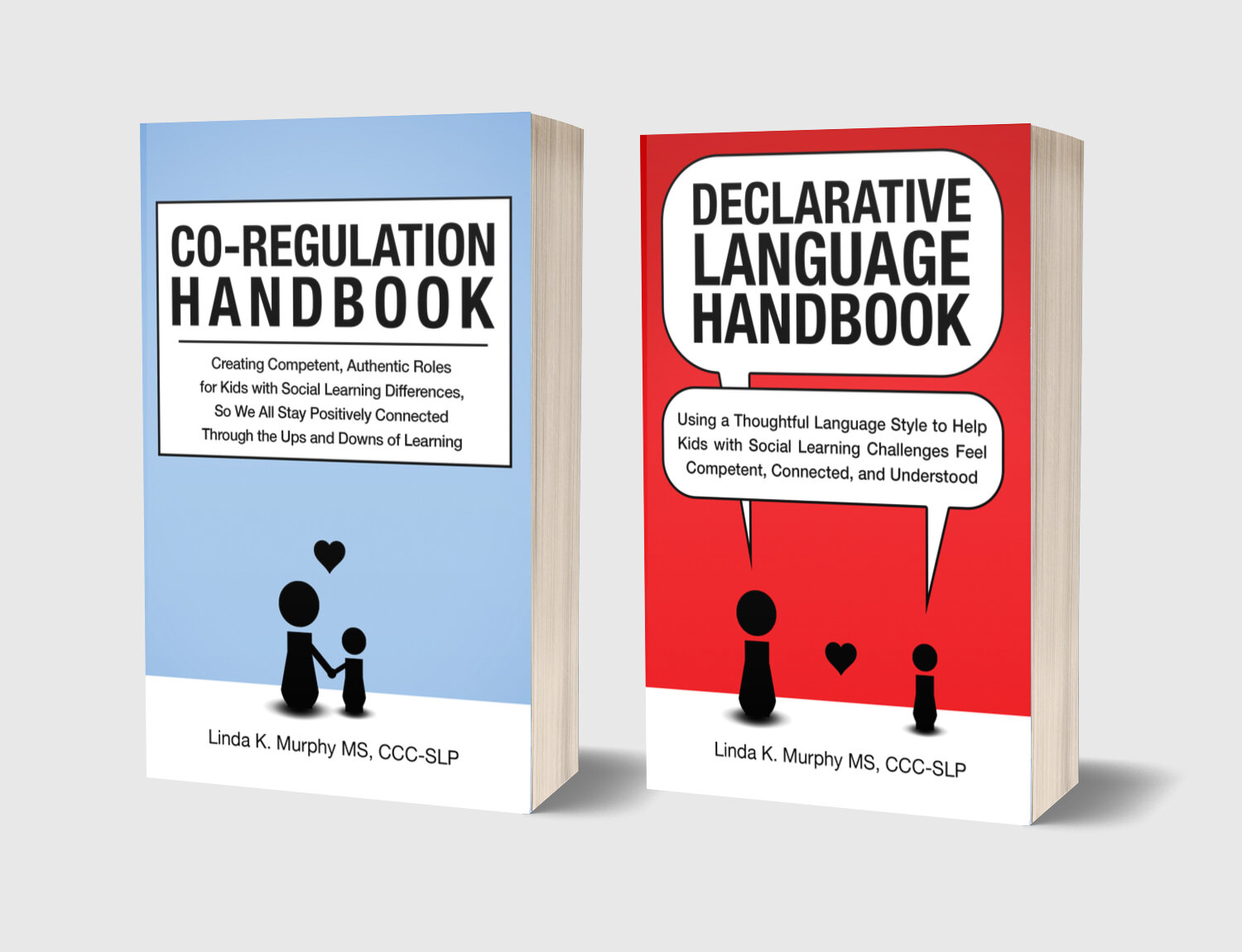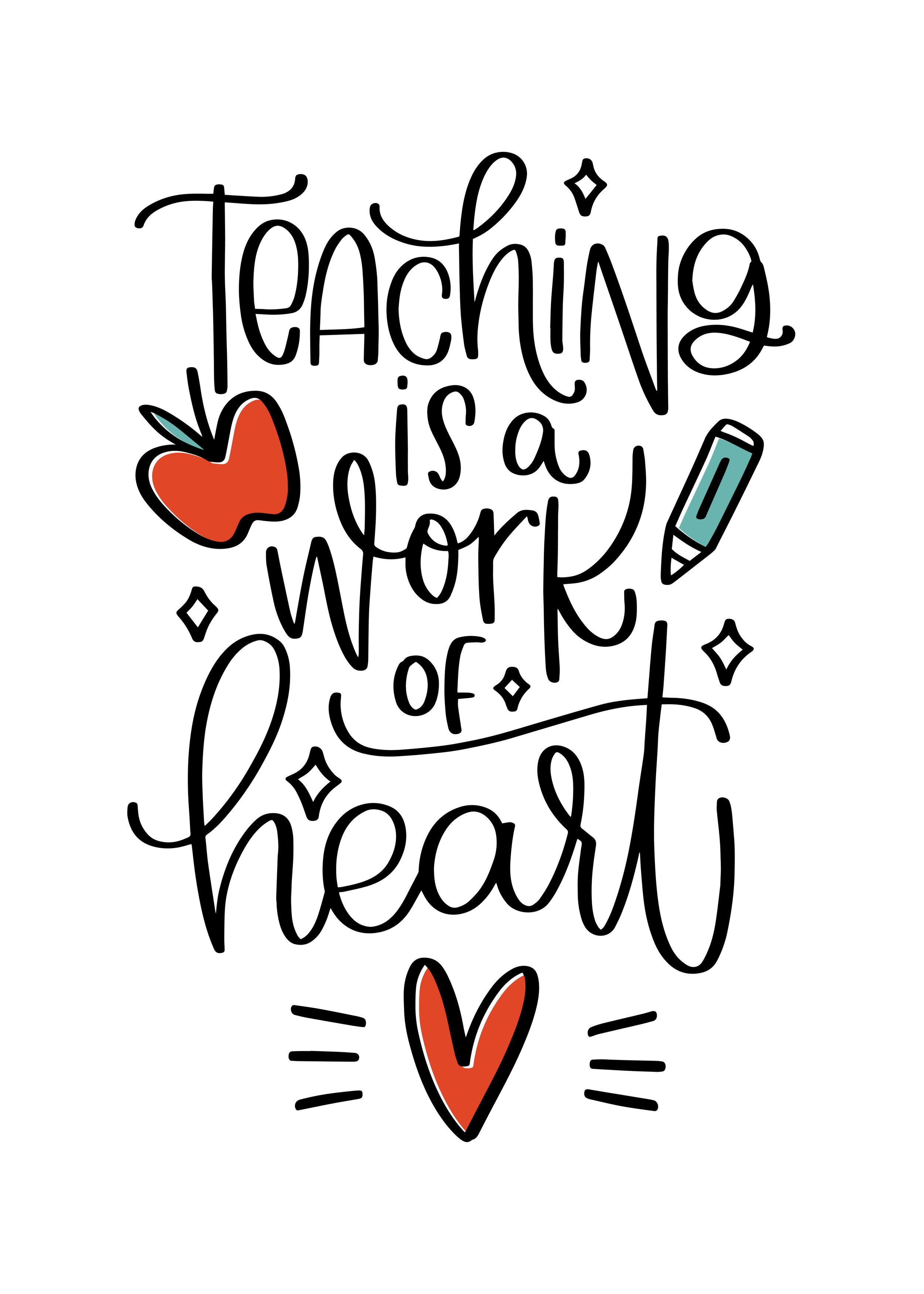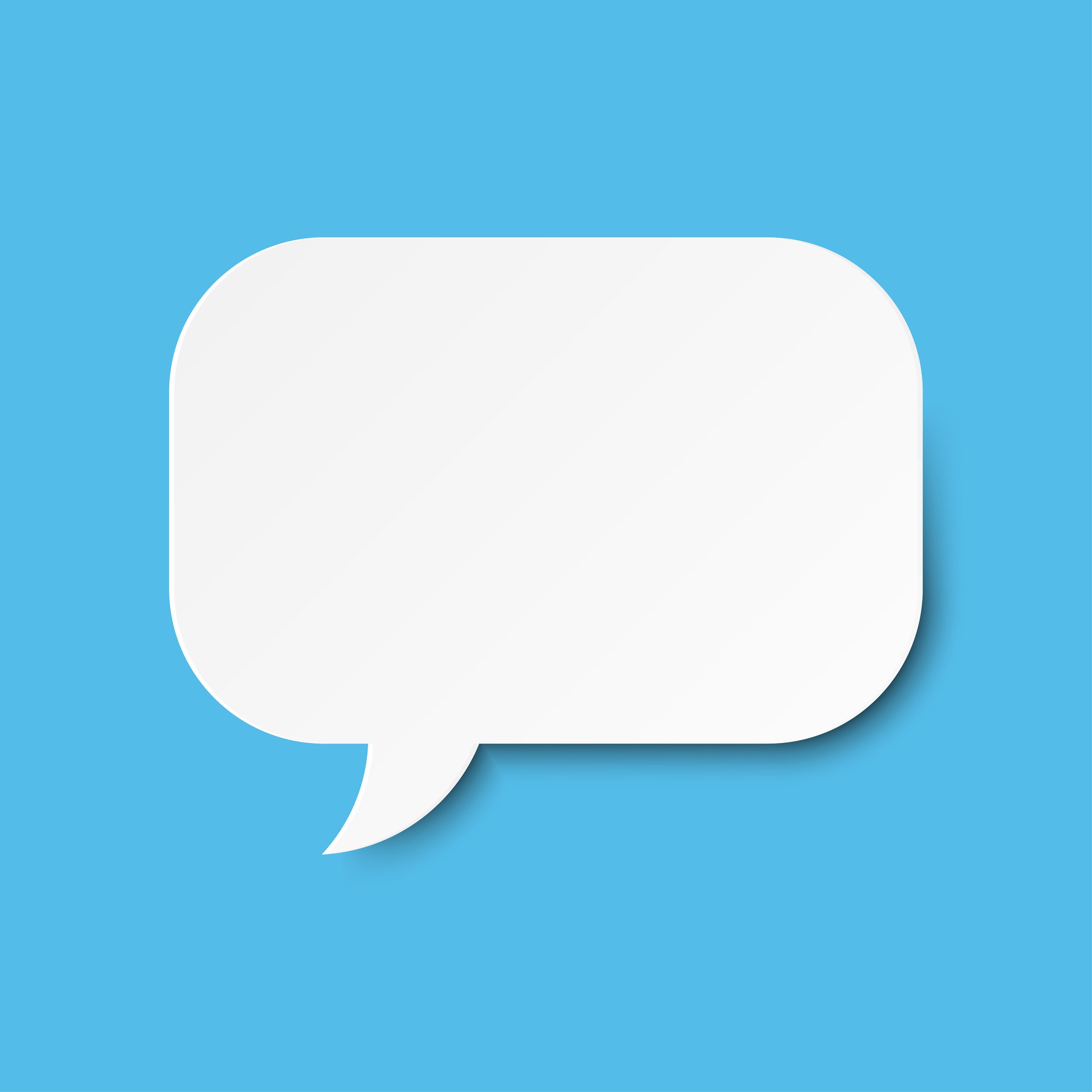Educator Voices
This past year has been exciting because several schools, parent groups, and agencies have reached out to schedule trainings for declarative language and co-regulation. The word is spreading!
As I connect with more and more educators, I am eager to share what I am hearing. I am in the process of creating a section on declarativelangauge.com that will be called Educator Voices. On this page, I plan to share examples of declarative language and co-regulation in action, across different teaching settings.
I’ll kick this section off today by sharing some educator examples of success in their setting, along with aspects of each example that I want to spotlight.
Then, in 2023, I’ll get into the weeds a bit more, and share thoughts and ideas in response to examples where an educator felt less successful or unsure what to do next.
I hope these ideas are helpful to you!
Example 1
I have a student who frequently does not appear to be attending during small group lessons.
Instead of saying his name repeatedly until he looks in my direction, I now say, "I am wondering if M is listening right now…" and then I wait until he responds in some way. Often, he hasn't heard what I said, and I have recently been trying, "When I haven't heard something someone said, I ask them to repeat it", instead of just repeating it for him without him letting me know that he didn't hear it. I feel like this is giving him some agency in making sure he gets the important information.
Highlights: I love how this educator understood the importance of waiting, so the learner could process what she had said, and how she modeled strategies for self-advocacy and communicative repair (getting information that you have missed and/or didn’t hear).
Example 2
Our Kindergarteners were lining up to go to lunch. A student had been asked to pick up a rolling pin off the floor and line up but was struggling to focus. Another student had done this just before. I said "Oh, I noticed how B just picked up the rolling pin and put it with the rest of the playdoh materials and then lined up. I wonder If J could do that…
Highlights: I love how this educator scaffolded the process of next steps by narrating out loud her own observations and episodic memories of the just-recent past.
Example 3
During PreK exit routine: "I notice your friend is getting her coat and backpack on…"
Highlights: I love how this educator guided the student to transition by thoughtfully referencing changes in their environment. This allowed the learner to notice on their own as they were ready to take in new information, process what it meant, and then respond with personal agency.
Example 4
As using declarative language has become common practice, I don't get stuck anymore. Instead, for me it's more about noticing when I slip out of it and comment to families that I forget sometimes, too! That happened last week during a consult after I had just started explaining to the parents what I meant by reducing the number of questions and commands. The child came over and after modeling some declarative language while we played, I asked a question that interrupted the natural flow of the play.
I laughed and explained to the parents what I had done. I believe the way I explained what had happened reduced some of their apprehension about trying to modify the way they communicated with their child.
Highlights: I love how this educator used herself as a role model for parents who were new to the approach, to show, we are all working on it, it is okay to make mistakes, and becoming aware of our own communication is the first step!
Example 5
So many examples! "I see another block under the table!" and the child picked it up.
Highlights: I love how this educator empowered a student to be a “finder” or problem solver in the moment!
Examples 6-10 are from participants in our Declarative Language Workshop (yes, educators welcome too!), who were gaining 8-weeks of practice with guided support, so they could to take these concepts to the next level!
Example 6
Student was drawing and did not have space for a plate of food because her notebook and pens were in the way.
Teacher (with empty plate in hand): Where would you like me to put this?
Student: Don’t even start with me! I have had to listen to X screaming all through literacy!
Teacher: Oh, I’m sorry about that. What were you reading?
Student: We were reading about the game of lacrosse and we didn’t get to finish.
Teacher: Oh, I think I heard that the Native Americans played lacrosse.
Student: Yes, they did and we just started reading about that too. And we’re reading about baseball. They put two articles together.
Teacher: Oh, so you can compare the games?
Student: Yes (moves notebook and pencil out of the way and places her sandwich in front of her).
What I got from the group conversations we have been having is that the background is important.
I took the time to investigate. Instead of stopping her after the “Don’t even start with me!”, comment, I let the student go on and from there was able to find out that she was upset because she didn’t get to read about a topic of interest. Giving her the time to get those feelings of frustration out MAY have helped with the anxiety she deals with around food.
Highlights: I love how this educator put their agenda aside and connected with the student in the moment to truly understand what had been happening in her day prior to their exchange. She responded to the learner’s upset with openness and empathy. This paved the way for an authentic, reciprocal conversation to unfold. The initial goal of making room for the plate on the table was met, but that was just the beginning of what happened. The rich exchange that took place between them strengthened their relationship and built trust, which will support all future learning! I also love how this educator saw the bigger picture and recognized what was truly important in that moment. Amazing!
Example 7
For the first time last week, I included 'partners that use a declarative language style' as an IEP accommodation.
Highlights: I love how this educator is finding ways to include these concepts into an IEP! Now, more people in that student’s life will learn to shift their own communication style from imperative to declarative.
Example 8
I had an exchange with a student this week that went well using declarative language. This student can be minimally verbal when asked imperative questions, so I was pleased to see her so expressive here.
Me: I went for a walk this weekend. I wonder what you did.
Student: (long pause) lose power
Me: You lost power! When I lose power at my house, I use flashlights and candles.
Student: (long pause): I had my iPad.
Me: I wonder why you lost power. Sometimes it is because there's a storm.
Student: I lost power because a hurricane.
(The student was confused and there was not really a hurricane, but the length and complexity of language was great for this student).
Highlights: I love how this educator brought so many things together here that I have mentioned above! She let conversation unfold naturally by first sharing information vs. requesting information, she allowed the student time to process what had been said, she responded authentically in the moment to the information shared, and she supported the student to pull from their own episodic memory. Well done!!
Example 9
This week, I have focused my efforts on two fronts…
1. Adding more declarative language to my interactions with kids and adults alike. I turned my laptop into a visual reminder for some key phrases to help me (photo shared of her laptop with sticky notes on which the following phrases were written: I wonder, I was thinking, I’d love to share, your role/my role, wait time, I remember) .
and
2. I also helped assign roles for peer dyads + staff groups in trick or treating (door knocker, trick-or- treat say-er, sticker giver (me) to help the activity run more smoothly. Kids and grown-ups knew what to expect and staff knew what to support (for each kid in the group). It went well and I had the most fun -- after set up, my role was to sit in a closed room and wait for door-knocking and trick-or-treaters. :)
Highlights: I love how this educator brought in the idea of competent, authentic, contingent roles, saw how this helped EVERYONE (not just the students), and how she is finding strategies that work for her, to help her remember to incorporate these communicative shifts throughout the day. Thank you!!
Example 10
I’m spending this week working on some fun activities or games for students and staff to practice declarative language and wait time. I created an activity to help students (and staff) to practice "Naming the quiet" and get used to being more quiet and observing instead of talking. I think it is going to be so helpful for those "sillies" that we constantly encounter. I never thought about the laughing as uncertainty or anxiety about the silence but I think that makes perfect sense. Has anyone ever told them what is happening when things are quiet or why it is important? I sure haven't. My favorite motto for the summer is "Quiet is okay!" I can't wait until the students start saying it back to me.
Highlights: In class, we had talked about how - in a classroom - it is also helpful when students are quiet in order to give each other time to think. This of course can be hard to pull off (students may start laughing, may speak out prematurely, etc.). I love how this educator created an activity that (1) taught everyone the importance of silence, and explained what might be happening for others when we are quiet (i.e., they are reading, thinking, problem solving, etc.) and (2) offered them structured practice to experience “quiet” together, for manageable amounts of time.
Are you an educator with examples of success to share? Please send them my way so I can include your voice too!
Thank you everyone for making 2022 such a great year for declarative language and co-regulation. I hope you all are able to enjoy some downtime over the next two weeks and I’ll see you back here in 2023!
If you like my Sunday Snippets of Support, you can receive them directly to your inbox here.







